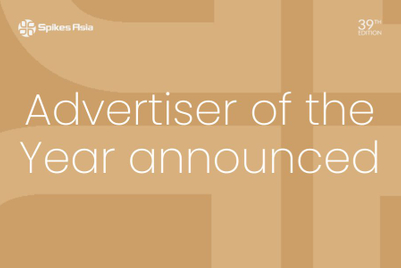
| PARTNER CONTENT |
Budweiser celebrated Qixi Festival with an on- and off-line campaign that celebrates all kinds of love.
Commonly known as Chinese Valentine’s Day, Qixi (literally meaning ‘seventh’ day of the seventh lunar month) Festival originated in the tale of two lovers, Zhinv (the weaver girl) and Niulang (the cow boy). Due to forbidden love, they were cast to opposite sides of the ‘Silver River’, and could only meet once a year on Qixi, when a flock of birds would form a bridge between the two.
Budweiser produced a campaign comprising a short film and a limited edition set of artfully-designed beer bottles with the tagline ‘all love is love’ for Qixi this year.
For the short film, the US beer company invited real influencer couples of various stripes, including a couple who has been in a 15-year-long relationship, a couple who has a 21 year age difference between them, to tell their stories. What’s key about the Budweiser film is that the couples’ faces are covered and only revealed at the very end of the clip, hitting home the message all that matters is that the two people in the relationship are in love.
The film also capitalised on rise of influencer marketing in China. In an era when consumers find themselves inundated with ads and paid content, they are, more than ever, holding creative campaigns to higher standards—not only in terms of technical quality but how authentic the narrative is. And one exemplary way to make your campaign more authentic is by engaging social media KOLs who started their careers on the digital or online sphere, have built close relationships with their groups of followers, and usually have much higher rates of engagement.
Aside from the short film, Budweiser also created a limited edition set of four beer bottles. Designed by Norwegian designer Magnus Voll Mathiassen (MWM), each Budweiser bottle features either a man or woman on it. If you set two bottles on the table, and rotate them slightly so that their faces ‘touch’, it would appear that the two figures are kissing. You might get a man and a woman kissing, two women kissing or two men kissing, pointing to the theme of diversity that lies at the heart of the campaign. The bottles are daubed luxuriantly in the Budweiser red, and feature bold lines and graphics characteristic for which MWM is known—making them collectible items not only for fans of the brand, but also those who celebrate love and diversity. Budweiser’s Qixi campaign is a clever concept that celebrates diverse forms of love without stereotyping what LGBT+ love is.


According to Rebecca Kuo, AB InBev senior communication director of APAC, “Diversity has always been an important part of Budweiser’s DNA. We’re excited for the opportunity to encourage people to be their true selves. We hope that everyone will be able to benefit from each other’s differences and opinions.”
As more and more companies jump on the ‘pink dollar’ bandwagon, there is also the awareness that businesses need to go beyond tokenism. It’s not enough to just hang a rainbow flag outside your shop window, it’s about coming up with consistent campaign strategies that show your business is doing its share to support a still-underrepresented crowd.
Budweiser’s diversity campaign appears to understand the zeitgeist. LGBT+ couples don’t want to be singled-out, they want to be seen as part of a community. In their eyes, their love shouldn’t be labelled as ‘LGBT+ love’ but simply, as ‘love’.

So far the campaign has been a huge success, having already gathered 183 news clippings, and 2.16 billion+ impressions in total, which translates into RMB 21.06 billion in ad value. The campaign generated public support, with a Southern Weekly article notching up 100K+ views on WeChat platform in the first 24 hours. Budweiser also sponsored a LGBT Qixi event in Shanghai. The event drew many members of the press and hundreds of people, many of whom shared images as well as their thoughts on the topic via Weibo.
One customer commentsed, “I see the freedom to love whoever you want on the Budweiser bottles. Love should be defined by the relationship itself, not the form it takes on. As a society, we should be more accepting of different kinds of love.”
Budweiser’s diversity campaign struck a chord in the hearts of the public because of the understanding the company has of human psychology: one could come up with a metre-long list of the ‘ideal romantic partner’, or 10 reasons why he or she prefers a certain gender, but at the end of the day, there is one kind of love that everyone wants to celebrate: true love.



.jpg&h=334&w=500&q=100&v=20250320&c=1)

.jpg&h=334&w=500&q=100&v=20250320&c=1)
.jpg&h=334&w=500&q=100&v=20250320&c=1)


.png&h=334&w=500&q=100&v=20250320&c=1)

.png&h=334&w=500&q=100&v=20250320&c=1)







